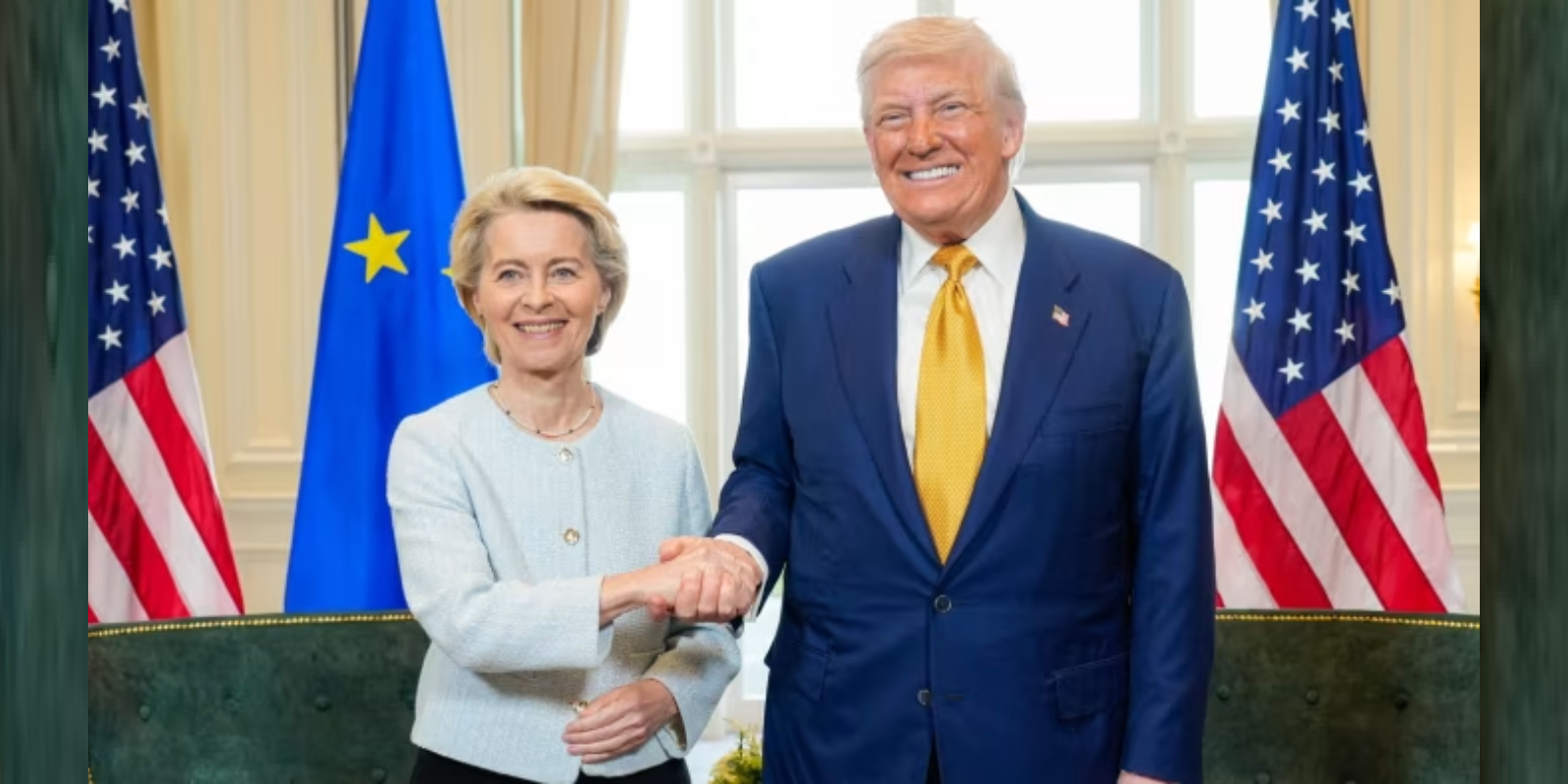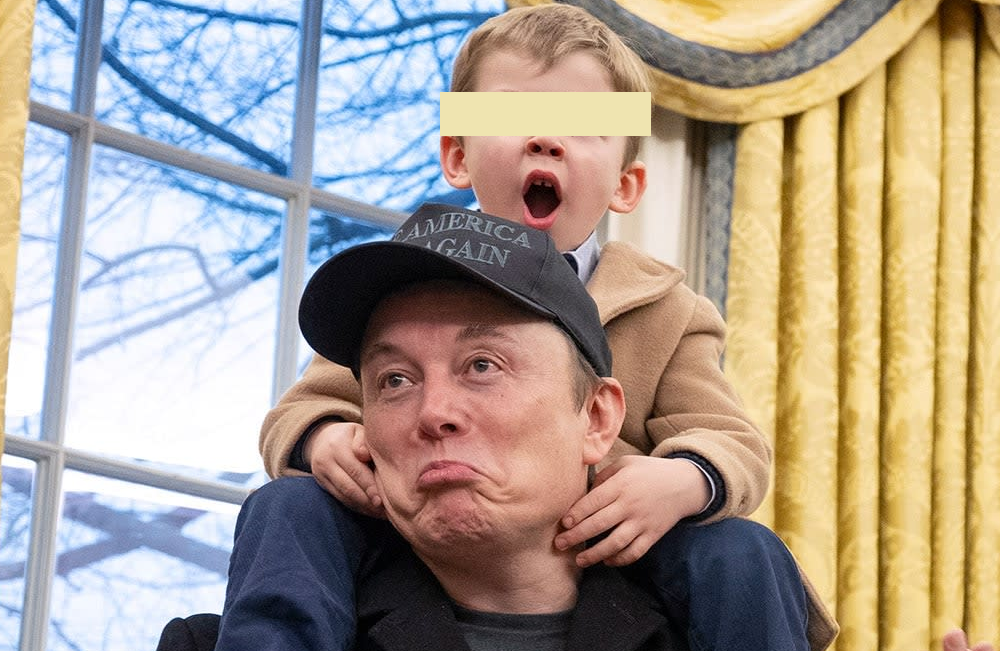Ursula von der Leyen and Donald Trump struck a deal that imposes US tariffs of 15% on most imports from the EU © Fred Guerdin/EU Commission/dpa
The EU has validated Trump’s bullying trade agenda
The US president’s deals are not a win-win for the global economy
The editorial board FT 30-07-2025
One by one Donald Trump has bulldozed his way to new trade deals. With the stick of losing access to America’s vast market and the carrot of negotiating down his hefty April 2 tariff threats ahead of an impending August 1 deadline, the US president has compelled nations including the UK, Japan, Indonesia, the Philippines, and Vietnam to yield to his terms. The EU, with its economic heft and leverage as a net importer of US services, had one of the better shots at finding a middle ground. Instead it, too, capitulated.
On Sunday, Trump and European Commission president Ursula von der Leyen struck a deal that imposes US tariffs of 15 per cent on most imports from the bloc, including cars, pharmaceuticals and semiconductors. US imports into the EU will not face higher tariffs as part of the agreement, which also requires the bloc to spend hundreds of billions of dollars on US energy products and weapons. This was largely Trump’s dream scenario.
All that Europe really gets is the avoidance of even higher tariffs, and slightly less uncertainty. The US president had threatened 30 per cent duties on the EU if no deal was struck by August 1. Another consolation was an agreement on zero-for-zero tariffs covering €70bn of trade.
The bloc has struggled to co-ordinate its negotiations and potential retaliation across its 27 member states. There remains confusion on what products are covered by the deal. On Tuesday, France was seeking clarity on exemptions for wine and spirits. US officials have said no such carve-outs are in the offing.
With his deadline for negotiations due on Friday, more than 60 per cent of US imports threatened with “reciprocal tariffs” are now covered by Trump’s deals. The president clearly has a winning formula for getting his way. First make shocking demands to stoke panic. Then pull back for time-limited negotiations. Having a mix of economically vulnerable, retaliation-shy and pliable trade partners helps. Finally, strike an agreement below the initial threat level and sell the result as a win-win.
That the April 2 “reciprocal” tariff package has been whittled down is only a small relative positive. The world’s largest economy’s effective tariff rate is still at a 90-year high, and will rise further if Trump imposes full reciprocal tariffs on nations that fail to strike deals with him by Friday. Existing inventories, tariff front-running and the absorption of higher duties by businesses have, for now, dulled the near-term impact of Trump’s protectionist agenda. Despite raising its near-term growth forecasts on Tuesday, the IMF said trade uncertainty meant global economic risks were skewed to the downside. Indeed, assuming Trump’s plans aren’t diluted or postponed again, the hit from higher trading frictions to the international and American economy will become more noticeable.
Either way, Trump’s deals are not set in stone. With his belligerent negotiating style, the US president has subverted the rules-based trading system by usurping historic trade agreements and undermining the most favoured nation principle of free trade. The deals he has struck are likely to remain open-ended. The White House is also readying sector-specific tariffs, which will heap more costs on key industries.
Trump has ushered in an era in which panic rather than policy drives the global trading system. Those negotiating with his administration say striking deals is about pragmatism. But for those that ought to be able to push back, such as the EU, it has looked more like cowering to a bully. The world’s largest trading bloc may have dodged higher tariffs, but it has also rubber stamped the US president’s new world order.







